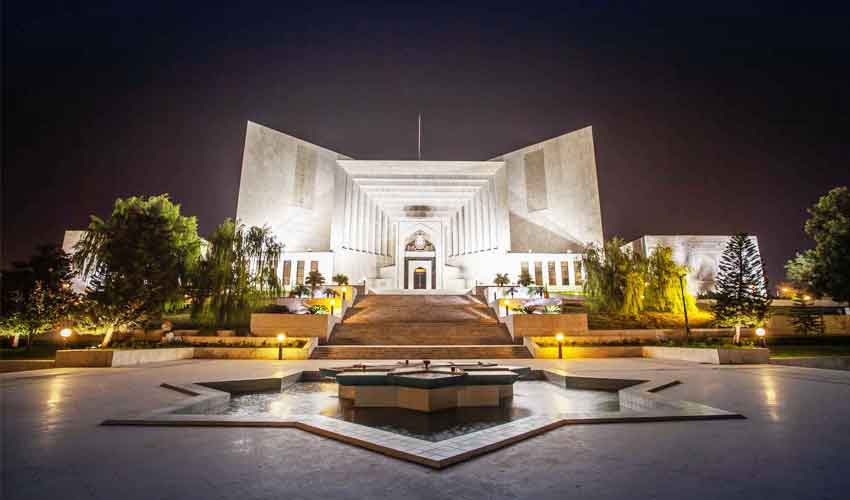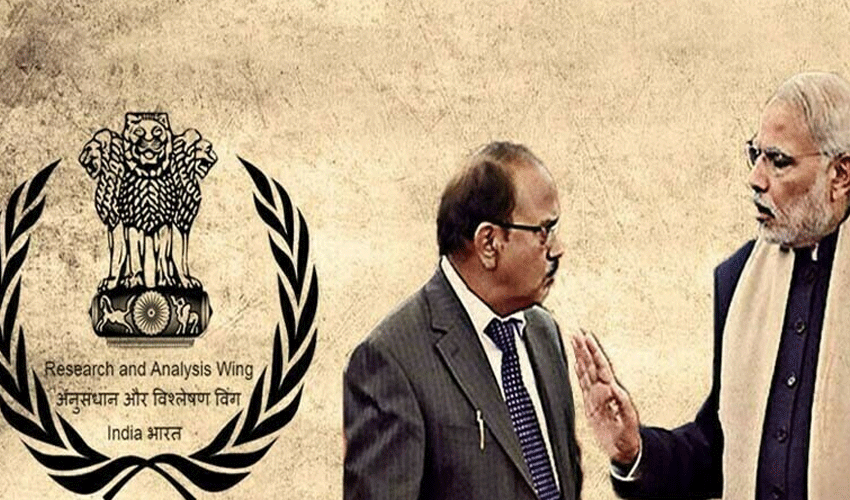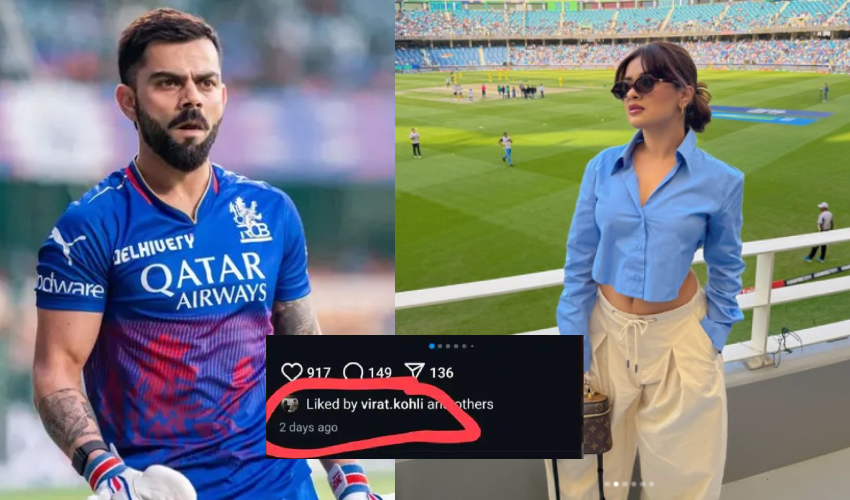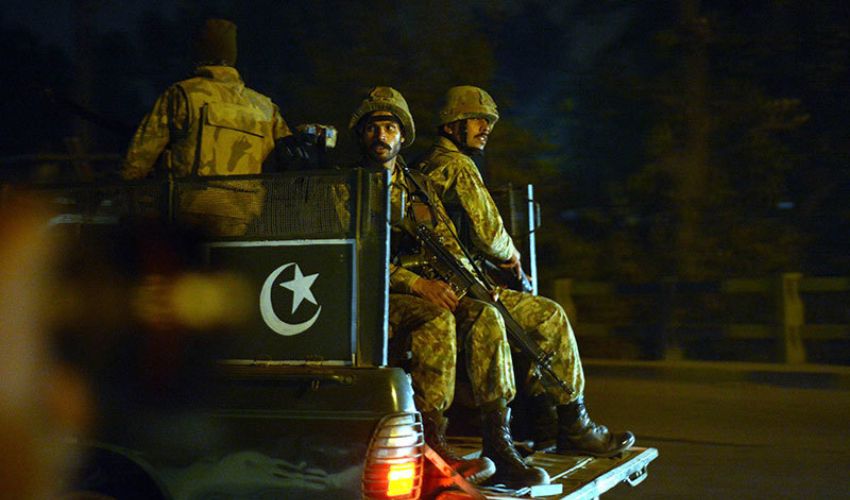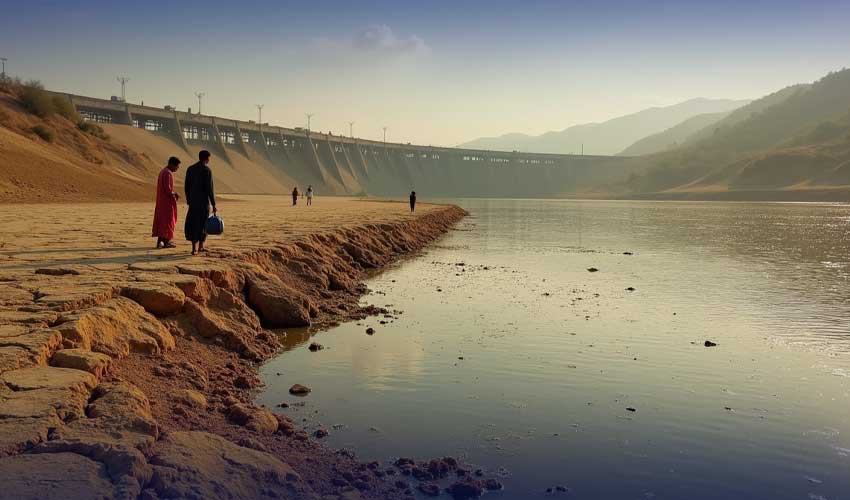The Supreme Court of Pakistan (SCP) full court adjourned the hearing of the Sunni Ittehad Council (SIC) appeal against the allocation of reserved seats to other parties till June 24.
Justice Muneeb Akhtar said that depriving the political party of the election symbol was the cause of all the controversy as the Supreme Court had upheld the decision to withdraw the election symbol.
Justice Muneeb Akhtar further remarked that the election symbol problem was created by the Election Commission of Pakistan (ECP) itself and ECP could have solved its problem by declaring the candidates independent.
A 13-member full bench of the Supreme Court headed by Chief Justice of Pakistan Qazi Faiz Isa heard the appeal of the Sunni Ittehad Council (SIC). Justice Syed Mansoor Ali Shah, Justice Muneeb Akhtar, Justice Yahya Afridi, Justice Aminuddin Khan, Justice Jamal Khan Mandukhel, Muhammad Ali Mazhar, Ayesha Malik, Athar Manullah, Syed Hasan Azhar Rizvi, Shahid Waheed, Irfan Saadat Khan, and Naeem Akhtar Afghan were part of the full court.
The court remarked that the hearing of the case will be held daily from June 24.
Chief Justice of Pakistan (CJP) Qazi Faiz Isa inquired whether the manifesto of the Sunni Ittehad Council and PTI were similar. “The political party has an importance in the parliamentary system, if you want to see the Constitution, then look at the whole, not mix and match. Come in front of people and represent them.”
Justice Mansoor Ali Shah said that those who joined the Sunni Ittehad Council are not saying that they did not agree with the manifesto. “Why is it necessary to contest elections for a registered party for the inclusion of independent candidates and what’s the wisdom behind it.”
Chief Justice Faiz Isa said: “If you ask me, there is a good reason behind it, if a party does not participate in the election, it rejects the political process.”
Faisal Siddiqui, lawyer of the Sunni Ittehad Council, told the court in his arguments that on Monday Justice Jamal Mandukhel questioned why PTI did not contest the election as a party. Salman Akram Raja and Faisal Siddiqui reiterated that there is no dispute that the Sunni Unity Council (SIC) did not contest the election.
Chief Justice Qazi Faiz Isa inquired about the parliamentary leader of the Sunni Ittehad Council, to which, Faisal Siddiqui replied he did not have that information.
Justice Athar Manullah said that it is necessary to have a political party for a parliamentary party, Justice Jamal Mandukhel said that decisions are made in the parliament by the parliamentary party, and everyone is bound to accept the decisions.
Justice Muneeb Akhtar remarked that a parliamentary party is not bound to obey the party leader, Article 51 mentions a political party and not a parliamentary party. “Article 51 and reserved seats are a matter before taking oath,” he remarked.
Justice Muneeb Akhtar further said that the parliamentary party will come into existence if the members take oath, it is irrelevant to mention the parliamentary party on this occasion, it would be appropriate to focus on the political party and the case.
Lawyer Faisal Siddiqui said that there is a distinction between a political party and a parliamentary party.
Chief Justice Qazi Faiz Isa inquired whether the Constitution recognizes this distinction. Faisal Siddiqui said that yes, there is Article 63A in this regard.
The Chief Justice inquired about the status of SIC before the February 8 general elections. On which the lawyer said: “SIC was a political party before February 8, became a parliamentary party after the joining of independent candidates.”
Justice Athar Manullah inquired whether it is possible to have a parliamentary party without being a political party. Whichever party will be in the assembly will also be a parliamentary party. Justice Jamal Mandukhel said that an independent candidate is not affiliated with any party.
Justice Muneeb Akhtar said that if someone declares himself as a party candidate in the nomination papers and submits the party ticket, he will be considered a candidate of the party.
“Those who joined the Sunni alliance declared themselves as PTI candidates in nomination papers accepted as PTI candidates and people got elected, how do election commission rules can declare PTI candidates as independent? Election symbol or not is a separate debate.”
Justice Jamal Mandokhel remarked that this is what he was trying to explain since yesterday, which was why the successful people of PTI joined the Sunni Unity Council.
Chief Justice Faiz Isa said that only independent candidates can join the party.
Justice Ayesha Malik inquired on what basis the Election Commission of Pakistan (SCP) declared the candidates independent. The ECP allowed the candidates to contest the elections by recognizing them as independent.
The CJP remarked that the political party did not get a symbol due to the absence of intra-party elections and whether any candidate applied for the election symbol of a bat, to which, Faisal Siddiqui replied he applied to the ECP and challenged the order when it was rejected.
Justice Athar Manullah said that the election symbol is only for the convenience of the political party, even without the election symbol, the party can contest the election as a party.






